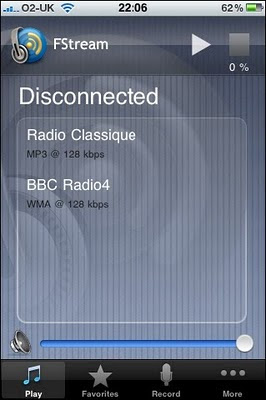Ear candles must surely now be very well known as being unable to remove ear wax as there is no suction force generated when the candle burns. Some evidence for this has been provided by an article published in 1996 which said "
tympanometric measurements in an ear canal model demonstrated that ear candles do not produce
negative pressure" ie, ear candles don't suck [Seely
http://www.ncbi.nlm.nih.gov/pubmed/8849790].
I've not held a burning ear candle over a small pile of dust to see if it moves the dust but I hear, anecdotally at least,
that it doesn't. I expect there's a YouTube video demonstrating this somewhere.
Some manufacturers have moved on from claiming that candling is about removing wax and speak in vaguer terms about 'balancing the ear' or removing toxins or the usual rubbish. While manufacturers might speak in more guarded terms the practitioners who use the candles aren't always so cautious. The idea that there is something physical, in the used candle, that has come from the person's ear seems to be fairly persistent.
The internet is full of text and videos implying that, on breaking open the used candle, the residue remaining contains human material including wax and dust from the ears. In our best Pantomime voices: "Oh... no.... it... doesn't".
The easiest way to demonstrate this is to burn a candle without putting it in an ear (using a glass jar for example) and seeing what's in the residue - very simply there appears to be no difference in the contents of the candles regardless of where they've been burned. This was done in 1995 by the people behind the Straight Dope
http://www.straightdope.com/columns/read/1103/how-do-ear-candles-work
Going a step further than just looking at the residue, you can analyse the contents reasonably easily using chromatography (a method of separating the various components in a mixture) and mass spectrometry (a method of identifying the individual components by breaking the component and examining the fragmentation pattern).
"When the powder was analyzed using gas chromatography and mass spectrometry it was found to constitute multiple
alkanes that are found in candle wax but not in ear wax."
Rafferty 2007 quoting Seely 1996. [An example of an article about looking at alkanes in a geological context is available
here].
So it's unlikely that the candles remove wax - I've no idea how to measure the removal of toxins or the rebalancing of the ears. That seems to be conveniently beyond measurement... the only way to demonstrate this in favour of the ear candling process is that many people claim to feel better after it, and return for subsequent sessions, reporting improvements in a variety of things (hearing, discomfort etc.). Unfortunately this is too subjective to count as good quality evidence.
Ear candles are also quite dangerous. There are numerous reports of candle wax being added to the ear (quite the opposite from what has been claimed), in some cases the hot wax damages the eardrum, though rarely permanently. I can't get
too uptight about the dangers of ear candling for the simple reason that people do all sorts of dangerous things (skiing, crossing roads, driving, 'wonder what that button does') and they don't always come to harm but in most risks there's usually
some benefit (having an exhilarating downwards snowy experience, getting somewhere, discovering something) - in ear candling the benefit seems to be set at zero.
The FDA sent these 15 letters in March - I first heard about the FDA cracking down on ear candles as general internet chatter about the FDA banning them. I don't know if that's the FDA's plan (the letter I read just wants evidence of better procedures for complaints, and clarity on what is actually being claimed so that it aligns with what can be claimed) but I thought this article, which acknowledges that ear candling is nonsense, was interesting because it points out that...
"The FDA, though, may be testing the limits of its jurisdiction. The primary purpose of ear candling is wax removal, which is not a medical process. So in theory the letters are open to challenge from anyone who has enough money to take the FDA to court.
...
Of course, most of the accused hippies didn’t stick to the simple claim that candling unclogs wax. They went further, claiming it cures
sore throat, swimmer’s ear,
increase circulation, and
eliminate chronic ear infections in children." Source: reference 3 below.
The letters have been sent to the following manufacturers
King Cone International;
Indian Mountain Center;
Bobalee Originals Manufacturing;
International Ear Candle, LLC;
Home Remedies Solutions;
Harmony Cone;
A..J.'s Candles Inc;
Wholistic Health Solutions;
Wally's Natural Products Inc.;
Body Tools;
Health, Wealth, & Happiness;
White Egret, Inc.;
Brennan & McCoy;
Amasha;
Unisource;
Herbs, Heirlooms and Homebrew.
Source:
FDA orders 15 companies to stop marketing ear candles.
http://www.ncahf.org/digest10/10-20.html - thanks to
@Blue_Wode for the tip
Summary:
a) Ear candles can't and don't remove ear wax
b) Any wax residue at the end of the process is from the candle
c) They sometimes add candle wax to the ears
d) They are a waste of money
Some safer methods of ear wax removal are discussed in BMJ Clinical Evidence
Further reading
1. Fire in the hole! The truth about ear candling
http://doesitwork.msnbc.msn.com/archive/2008/01/17/585352.aspx?p=2
2. Snuffing out ear candles SkepticZone
http://skepticzone.wordpress.com/2009/01/31/snuffing-out-ear-candles/
3. FDA launches jihad against hippies who stick burning ear candles into babies' ears, but may have overstepped
http://industry.bnet.com/pharma/10006983/fda-begins-jihad-against-hippies-who-stick-burning-ear-candles-into-babies-ears/
4. Hokey ear candles
http://brodiesnotes.blogspot.com/2009/10/hokey-ear-candles.html (a previous post from me, listing some of the published medical literature on ear candling).
Also known as ear cones, thermoauricular therapy
 Picture shows TV Catchup as an icon on iPhone
Picture shows TV Catchup as an icon on iPhone







